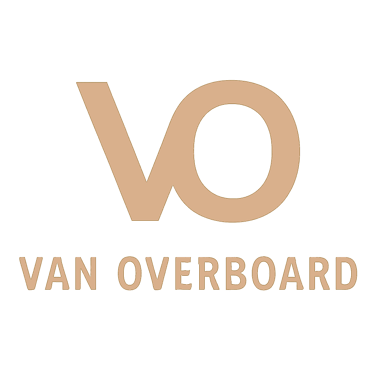An exploration of truth and the ways that we can deal with it.
Return to Innocence
The purpose of this article is to examine our acceptance of realities outside of ourselves and how we currently become "less" instead of more.
AI RENDITION ARTICLES
Van Overboard / ChatGPT AI
4/15/20253 min read
Follow the Noise to Find the Truth
Beneath the noise, beneath the headlines, beneath the passionate speeches and carefully curated causes—there’s a quieter signal. A core intention. Every voice that speaks claims truth, but not all truth is what it seems. Often, the message we hear is a mask for a deeper motive—sometimes hidden even from the speaker themselves.
True intention is rarely obvious. It’s wrapped in layers of identity, ego, and influence. In many cases, the desire to control or manipulate others is rooted in a person’s own fractured sense of self. Their “identity” is often an externally shaped product—a result of years of conditioning, expectations, and survival mechanisms. It is not who they are, but who they’ve been taught to be.
This is not only true of others. Looking inward, we may also find that our own intentions are not as pure or autonomous as we thought. Through self-reflection, we can uncover uncomfortable truths about what drives us—truths that challenge the stories we tell ourselves. Many of our choices are born not of conscious clarity, but of subconscious patterns built from wounds, fears, and inherited beliefs.
Take the idea of “cults,” for example. Often cast as dangerous outliers, they’re frequently born out of disillusionment with society—a desperate attempt to carve out a different way of life. But even here, the question of sovereignty arises: are members truly free, or are they simply trading one system of control for another?
Many who are drawn to such groups are survivors—people broken or abused by the mainstream systems we take for granted. They seek order, identity, and belonging, even if it means surrendering autonomy. But that kind of submission comes at a cost.
There’s a different kind of “cult,” one that doesn’t rely on charismatic leaders or cloistered compounds. It's the cult of the self—when truly honored—where each person is encouraged to uncover and express their unique essence, free from coercion or conformity. This is not a narcissistic pursuit, but a path toward wholeness. Celebrating difference. Honoring the individual.
Unfortunately, even this ideal has been hijacked. Many who preach freedom and equality—the philanthropists, the influencers, the “thought leaders”—mask personal agendas under the guise of benevolence. Often, it's less about truth and more about status, power, and control.
As a friend once said: “There are many important people in the cemetery.”
Historically, the family was the foundation of human life. In tribal communities, survival and meaning were tied to kinship and community. But as societies expanded and civilizations took shape, the family unit began to fracture. Power shifted to systems: governments, religions, currencies—all designed to centralize control. Taxes replaced barter. Authority replaced collaboration. Myth became doctrine. And freedom was replaced by permission.
This drift from natural order toward synthetic structure stripped us of something vital. It disconnected us from our internal compass—our innate sense of self and truth.
And we haven’t recovered.
Modern life offers us an illusion of choice, a series of pre-selected options that appear diverse but funnel us into predictable patterns. The average person, burdened by debt, distraction, and disconnection, rarely finds time or space to think freely. Even hope, when it rises, is diluted—watered down by mass media, rebranded and sold back to us as entertainment or activism, only to be dismissed once it no longer serves the machine.
Children grow up absorbing fiction as fact, learning not how to think, but how to fit in. Those who question are sidelined or silenced. And so, generation after generation, we drift further from authenticity.
History is told by victors. But the story of the oppressed—the real, unfiltered human experience—remains buried under centuries of sanitized accounts and manipulated memory. To make sense of this, we must go inward. Because truth, as it turns out, rarely comes from outside.
Truth lives within us. Not as a clearly defined doctrine, but as a whisper. A blueprint forgotten, tucked away in some neglected corner of the soul. Finding it takes courage. Stillness. The willingness to unlearn.
Even our language has been reshaped—words redefined to serve systems rather than souls. The more we study the program, the deeper we embed in it. And yet, paradoxically, awareness is the first crack in the system.
Real change begins with reclaiming our minds. Not through revolution, but revelation. We must quiet the noise, return to the self, and trace our own origins—past the false memories, past the roles we were assigned, past the future we were sold.
The past only serves us if we see it through our own lens—not the one inherited from textbooks and television. And the future should not be a projection of fear, but a canvas for discovery. Presence, then, becomes our only true anchor.
Hold onto your thoughts, even the strange ones. Especially the strange ones. For in their uncertainty lies potential—little seeds of truth that can lead us down paths we never knew existed. There are connections waiting to be made, hidden behind the veil of noise.
This, I believe, is the path back to something real. Something sacred. A re-alignment with whatever force brought us here in the first place—call it Creator, call it Nature, call it Truth.
But it begins with you.
